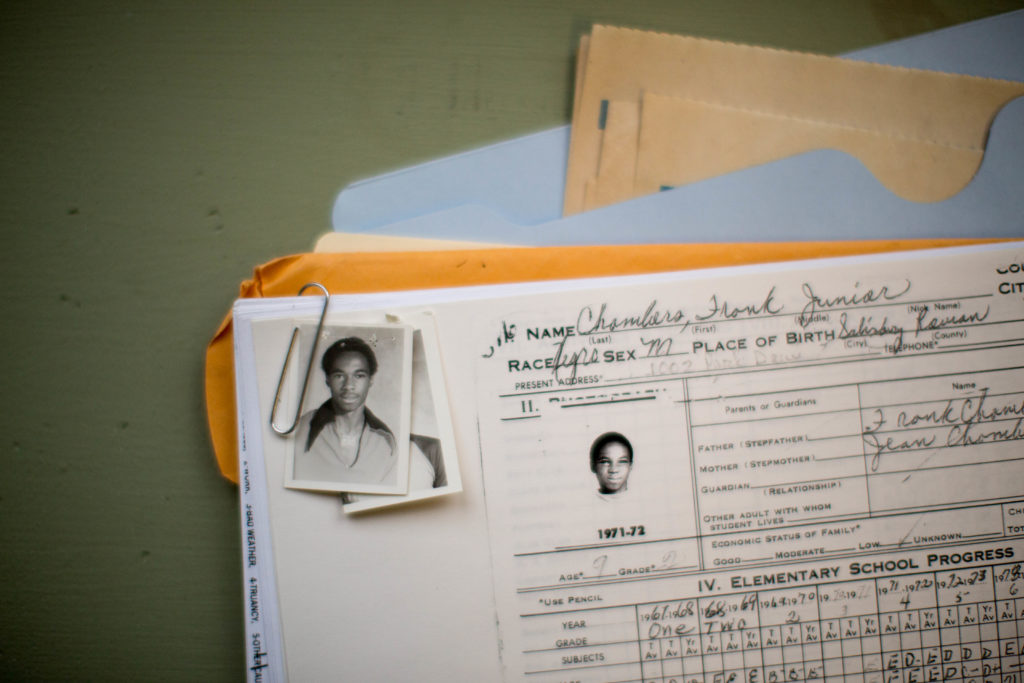
Frank Junior Chambers was the third of five children born into extreme poverty in rural Rowan County. His father beat his mother so badly that she suffered permanent headaches and hearing loss. The beatings continued during her pregnancy with Frank, when he hit and kicked her in the stomach. She never received any prenatal care. Compounding the damage, Frank contracted bacterial meningitis as an infant, a frequent cause of intellectual disability.
Throughout his childhood, the signs of Frank’s disability were clear. He couldn’t learn to write his name or follow basic commands. At 8 years old, he still wasn’t potty trained and couldn’t dress himself. His teachers remarked that he was “slow to grasp basic concepts” and he failed several grades. At 12, when testing showed him reading at a second-grade level, his teachers placed him in special education. He dropped out in eighth grade, when he was 15. IQ scores throughout his lifetime range from 63 to 73, clearly in the range of intellectual disability. His mother told his defense attorneys that she always worried her son had brain damage, but that the family was too poor to get him any care. “We were barely surviving,” she said.
As an adult, Frank never held a job for long. He never lived independently, but boarded with a woman who helped take care of him. The woman said he was unable to do basic tasks like hanging clothes on a line, and she was afraid to leave him in the house alone for fear he would accidentally start a fire. “In order for him to understand, you’d have to break down what you were trying to say like [he] was a little kindergarten child,” she said.
In 1994, Frank was one of three men tried for the killing of an elderly couple, B.P. and Ruby Tutterow, during a robbery at their house. Prosecutors portrayed Frank as the remorseless mastermind of the crime. Meanwhile, Frank’s defense attorneys never investigated his family history or had him evaluated by a psychologist. The jury heard nothing of his profound intellectual disability. Meanwhile, the jury sentenced one of his co-defendants to life, precisely because that defendant’s attorneys presented evidence of intellectual disability.
Since 2001, when the Supreme Court banned the execution of people with intellectual disabilities, his appeals attorneys have compiled overwhelming evidence of Frank’s disability. Yet, his claims have stalled in the courts and Frank remains on death row.


